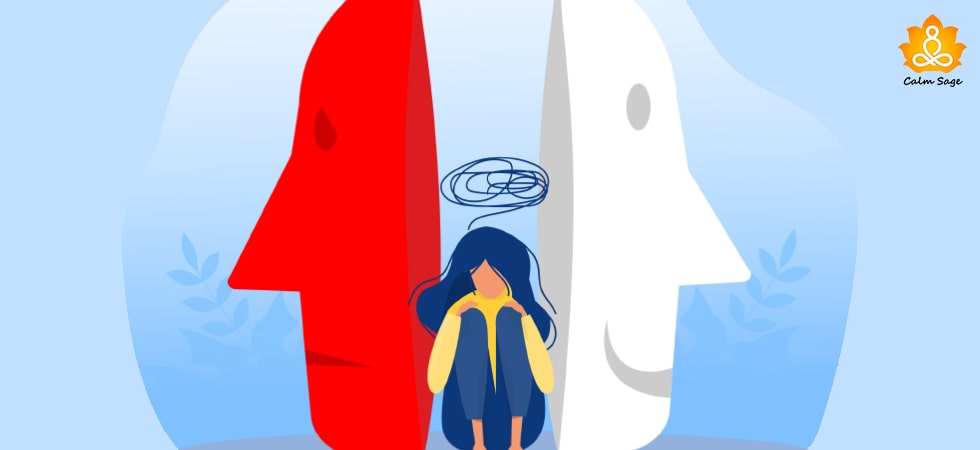20 Ways to Support And Help Someone With BPD

The recipe for a successful relationship is trust, respect, and patience. It can be challenging enough to navigate through your relationships, and even more so when you have a loved one with borderline personality disorder (BPD). Only with kind understanding, support, and patience can you help someone with BPD and make a significant difference in their lives.
Borderline personality disorder or BPD is a mental health condition that is characterized by intense emotional experiences, trouble regulating emotions, and challenges in forming and maintaining healthy and stable relationships.
If your loved one is living with the disorder, then you need to understand that people with BPD have a distorted sense of self-image, a fear of abandonment, and a constant struggle with controlling their impulses.
Let’s take a look at how you can help someone with BPD in a relationship, and what you can do to get your loved one with BPD the help they might need.
Signs Your Loved One Has BPD
BPD is not only challenging for people who have the disorder but also for the ones close to them. There could be constant tension in the relationship, for one. BPD might not be as easy to recognize, but there are some common signs you can watch out for.
Some signs that your loved one may have BPD can include;
- Experiencing extreme highs and lows in a relationship
- Constantly worrying about being abandoned, causing clinginess in relationships
- Having an unstable self-image, making it difficult to understand who they are
- Engaging in risky and impulsive behaviors, without considering the consequences of their actions
- Intense and extreme mood swings, often too challenging to predict
- Experiencing a persistent sense of emptiness
- Engaging in self-destructive behaviors or having thoughts of self-harm or suicide
How to Help Someone With BPD?
1. Educate Yourself
The first thing you can do to help someone with BPD is to educate yourself about the disorder. The more you learn about BPD, the better you’ll understand what your loved one is going through. This will help you better know how to help them, help yourself, and reach out to others for support.
2. Seek Professional Help
You can help your loved one with BPD by suggesting and encouraging them to seek professional counseling or therapy. Professional help can provide them with the necessary tools to cope with their symptoms.
3. Be Patient With Them
More than anything, be patient with your loved one. Understand and recognize that emotional regulation may be difficult for them. So be respectful of their emotions, and more than that, be calm and patient with them during intense BPD episodes.
4. Set Boundaries
You can help someone with BPD by setting and communicating clear expectations and boundaries to ensure a healthy and balanced relationship. Boundaries can help you and your loved one have a better relationship and support.
5. Offer Emotional Support
You can offer your help to someone with BPD by being there for them, listening to them, and offering emotional support when they need it. Sometimes, being there for your loved one when they feel distressed can be enough to show them, they are not alone.
6. Validate Their Feelings
Try as you might to acknowledge your loved one’s emotions and feelings, even if you can’t understand them as you’d like to. People with BPD struggle to regulate their emotions, so if they are sharing their emotions with you, then be empathetic and try to validate their feelings.
7. Encourage Healthy Habits
You can encourage your loved one to create and adopt healthy habits that help them cope with and deal with their symptoms. This can include having a balanced life with regular exercise, a nutritious diet, and getting proper sleep.
8. Help Them With Treatment Plans
You can help your loved one with BPD by helping them create and understand their treatment plans and even staying up to date with the same. You can go with them and consult a professional to explore the treatment plan, which can include medication management as well.
9. Join Support Groups
Joining support groups and helping your loved one with BPD join support groups to connect with others facing similar challenges can be a big help too. Support groups can help your loved ones connect and share their experiences with likewise people and offer them a sense of community and support.
10. Learn About Their Triggers
Understanding what triggers your loved one with BPD and what causes them to have intense emotional responses can also help them. If you know their triggers, you can communicate better with them and soothe them when it distresses them.
11. Develop a Crisis Plan
With your loved one and the help of their therapist, you can create a crisis plan to handle intense situations effectively. This way to help someone with BPD can be convenient when they struggle with a BPD episode. A crisis plan can also help save your loved one’s life if they are in a life-threatening situation.
12. Communicate With Them
To help someone with BPD, you can encourage them to communicate openly and honestly about their feelings and concerns. Communication can reassure them that their concerns are heard and that they are not alone.
13. Avoid Judgment
Try not to pass judgment on a person with BPD on their actions or emotions. People with BPD already live with too many social stigmas, and judgment can make things difficult for them. So, try not to be negative and help others become aware of the disorder to help someone with BPD.
14. Support Their Therapy Goals
You can help your loved one with BPD by encouraging them and actively supporting their therapy and therapy goals. As they move through therapy, try to understand the strategies that help them cope with their symptoms and ease their worries.
15. Promote Healthy Lifestyle
You can also help your loved one with BPD by encouraging activities that promote their mental, emotional, and physical well-being. Practices like meditation, active journaling, and relaxation activities to cope with their extreme symptoms can help.
16. Model Healthy Relationships
You can also try to model healthy relationship behaviors to your loved one with BPD to help them understand how to act. If you promote healthy behaviors, it can become easier for them to take note of them and emulate them in their relationships.
17. Offer Healthy Distractions
If you notice your loved one experiencing uncomfortable emotions, then you can offer healthy distractions. It could be anything from taking a walk, drinking a cup of tea, or doing something that takes their attention away to more positive things.
18. Learn DBT Skills
You can help someone with BPD by learning DBT skills. DBT or dialectical behavioral therapy is the most common and effective treatment for BPD, and it focuses on mindfulness, emotional regulation, distress management, and more. Knowing DBT skills can help your loved one cope with their symptoms effectively.
19. Take Care of Yourself
Just like in any other case, it’s important to take care of yourself too. Only when you’re healthy can you take care of your loved ones effectively, right? BPD can not only be harsh on the ones living with it, but also on the ones taking care of people living with BPD. Make sure you prioritize your health and well-being too while taking care of your loved one with BPD.
20. Be Aware of Helplines
BPD can increase the risk of self-harm, self-destructive behavior, and even suicide. To help someone with BPD, you need to be aware of the different types of help and care, such as intensive care/therapy, suicide hotlines, and immediate healthcare. Have a suicide hotline in your priority call list so that whenever you feel that your loved one is in life-threatening danger, they get the right help, immediately.
What If Your Loved One Denies Help?
It’s common for people with BPD to refuse help due to social stigmas and skepticism. In such cases, you need to approach the situation with care. Respect their independence, express your concerns, and gently encourage them to get help and professional support. You can’t or shouldn’t force someone to get help, but you can offer information and resources to help.
In an emergency, don’t hesitate to contact helpline numbers or a crisis hotline. It’s important to prioritize your loved one’s safety and well-being.
Online-Therapy
Best at providing Cognitive-behavioral therapy

- Excellent qualified, certified, and trained therapists
- Unlimited communication with the therapist via video, audio, and chat
- Offers a therapy toolbox with access to worksheets, journals, and more
- Affordable weekly subscription plans to pick from
Next Steps…
Finding the right therapist is also a crucial element for effective BPD treatment. You can find the right therapist by consulting with a mental healthcare professional with a specialization in treating personality disorders. You can also explore different approaches such as DBT and CBT, and consider different therapists to find the right one.
Supporting and helping someone with BPD needs patience, understanding, and respect. By educating yourself, encouraging professional support, and implementing the right strategies, you can help someone with BPD make a positive change in their emotional and overall well-being.
Your support matters, and with the right help and support, you can help your loved one manage the challenges of BPD.
Did this article help you find ways to help someone with BPD? Let us know in the comments box below. You can also share your thoughts and views with us in the comments section below.
Take Care!
Next Read:
Why Does Everybody Leave Me?& Understanding BPD Abandonment
All You Need To Know About A BPD “Favorite Person” Relationship




















